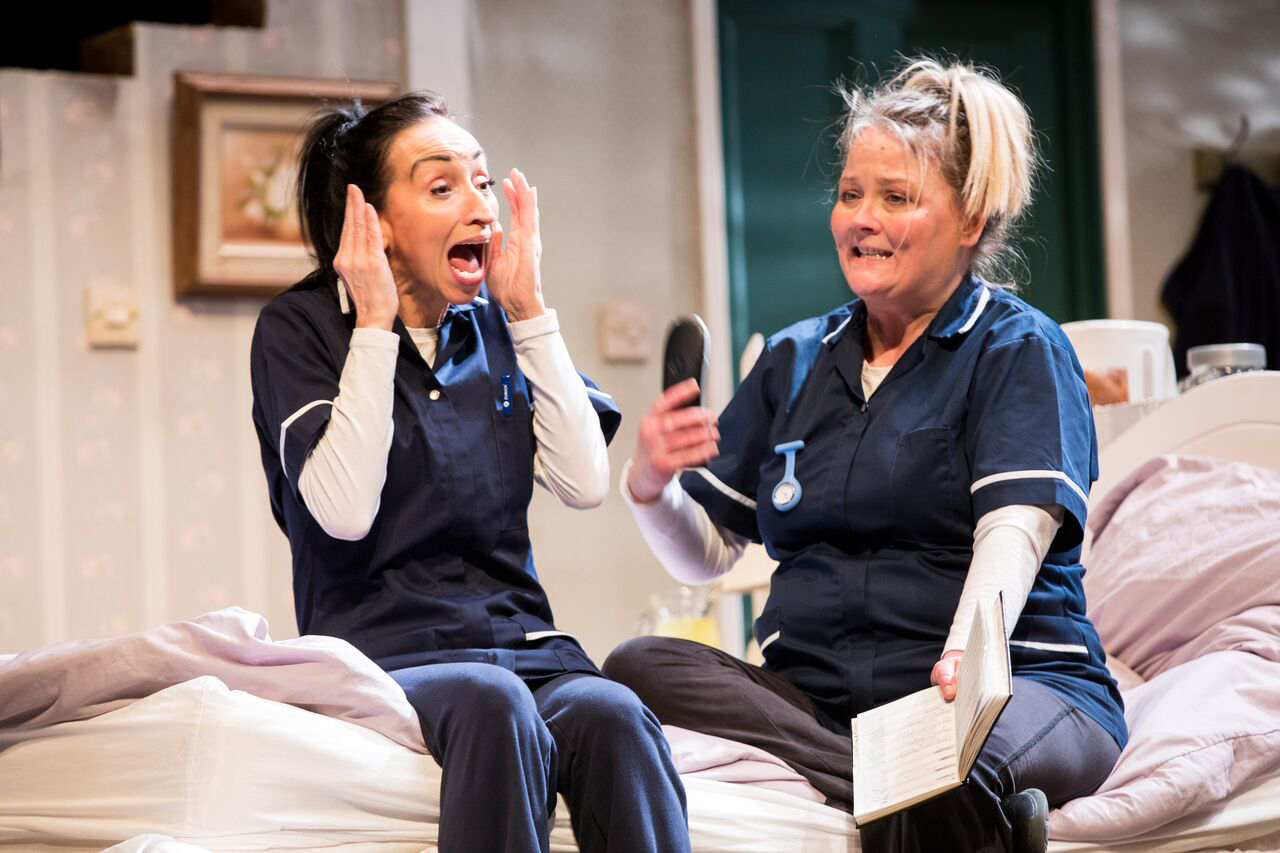THE opening night of Marie Jones’ dark comedy Fly Me To The Moon at the Grand Opera House was one full of raucous laughter. The Belfast playwright’s scripts have a reputation for their intense humour, but at the heart of this play are the stark realities of working class life, isolation, and the emotional labour of mothers.
The story gives the audience a veritable look into the lives of two overworked and underpaid care workers, Frances (Katie Tumelty) and Loretta (Abigail McGibbon), who look after the housebound 85-year-old Davy Magee, whose sole joys in life are horse betting, reading the Daily Mirror, and the music of Frank Sinatra.
What turns out to be a catastrophic Monday for the pair begins with a small personal disaster for Loretta; her son has forgotten his PE gear – she has to double back home and is late for work. In her absence, Francis has already helped Davy to the bathroom.
Loretta arrives at Davy’s bungalow and chats to her friend about their respective family lives – Frances lambasts the education system for failing her entrepreneurial son, who has recently found success selling knock-off DVDs, while Loretta worries about her out-of-work husband and their inability to pay for their daughter’s school trip to Alton Towers. All the while Davy hasn’t emerged from the bathroom.
When their charge fails to respond to repeated knocks at the door, Francis and Loretta panic, fearing the worst. As it turns out Davy has, in fact, died.
Hilarity ensues as the women come to grips with his death and are presented with a further dilemma; what if they waited a few hours before reporting his demise, allowing them to withdraw his pension from the ATM and collect his winnings from the bookies? It would surely solve their money woes.
Fearing the consequences of their petty crime, Frances and Loretta scheme up more and more elaborate ways to cover their tracks. What if they were caught? What if they were blamed for his death – could they be “up there with Myra Hindley and Fred West?”
Theatrical comedy often treads a fine line between being side-splittingly funny and desperately exaggerated, but Fly Me To The Moon undoubtedly falls into the former camp. Despite the unfolding madness and slapstick antics, Tumelty and McGibbon manage to retain a level of realism in their fantastic performances. These two absurd characters could easily be ordinary Belfast women.
Jones has written and directed a truly magnificent piece of comedy in Fly Me To The Moon but, crucially, the humour is punctuated, at critical moments, by important social commentary. Like many pensioners, the lonely Mr Magee, whose phonebook only contains the number of his bookie, lived a life in isolation – “a life of misery” as Frances says. The protagonists struggle with the daily problems of impoverished Belfast mothers, their crimes paling in comparison to the grand-scale corruption of politicians and bankers often mentioned in pages of their charge’s Daily Mirror. Loretta’s admission that her husband “even seemed smaller” since losing his job almost presented itself as a moment of comedy on the night, drawing a few solitary laughs before its significance sank in.
The preceding paragraph should leave readers in no doubt as to the hilarity of this play – there wasn’t a person at the Grand Opera House whose cheeks weren’t sore by the end.
However, audiences will also go home, having had some laughs, with something more to ponder.






